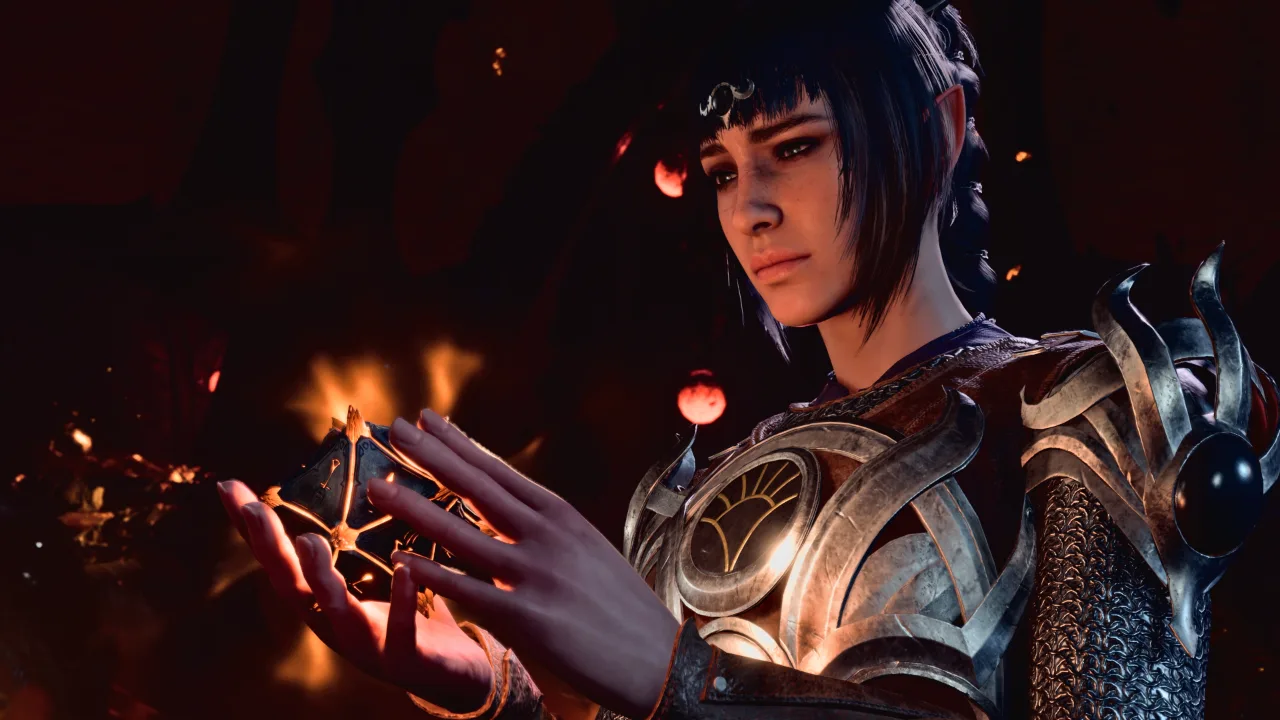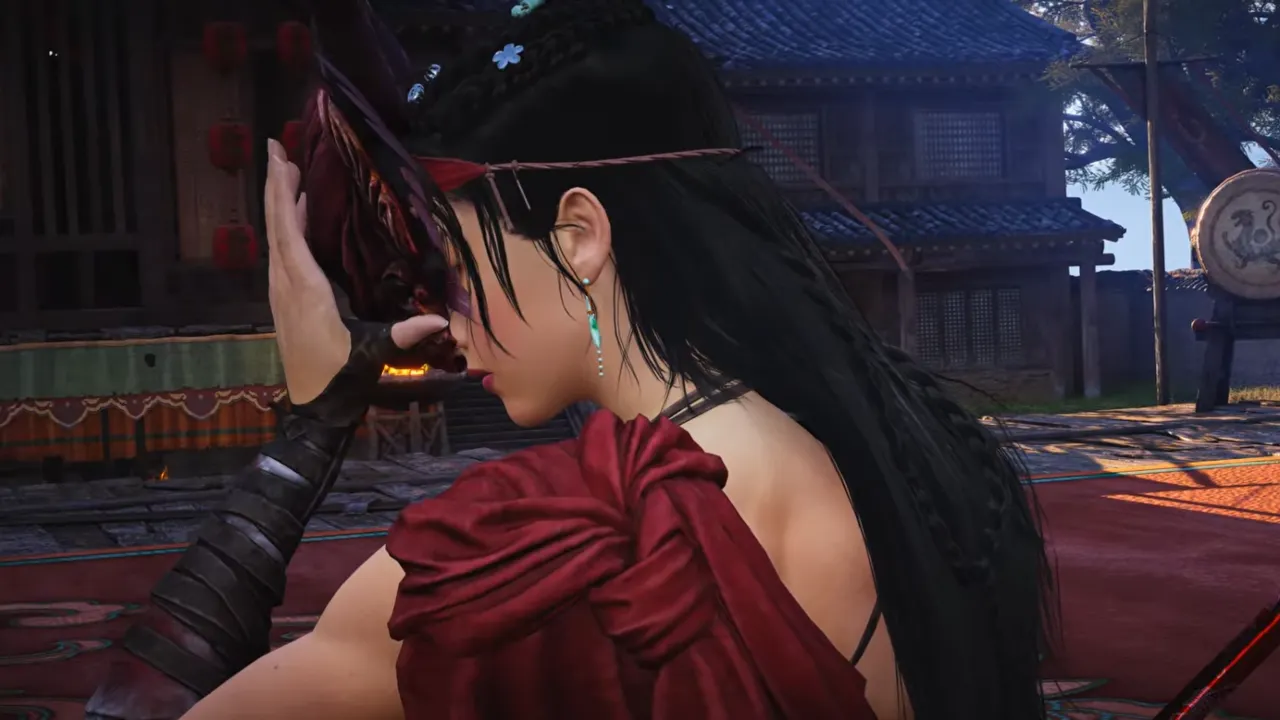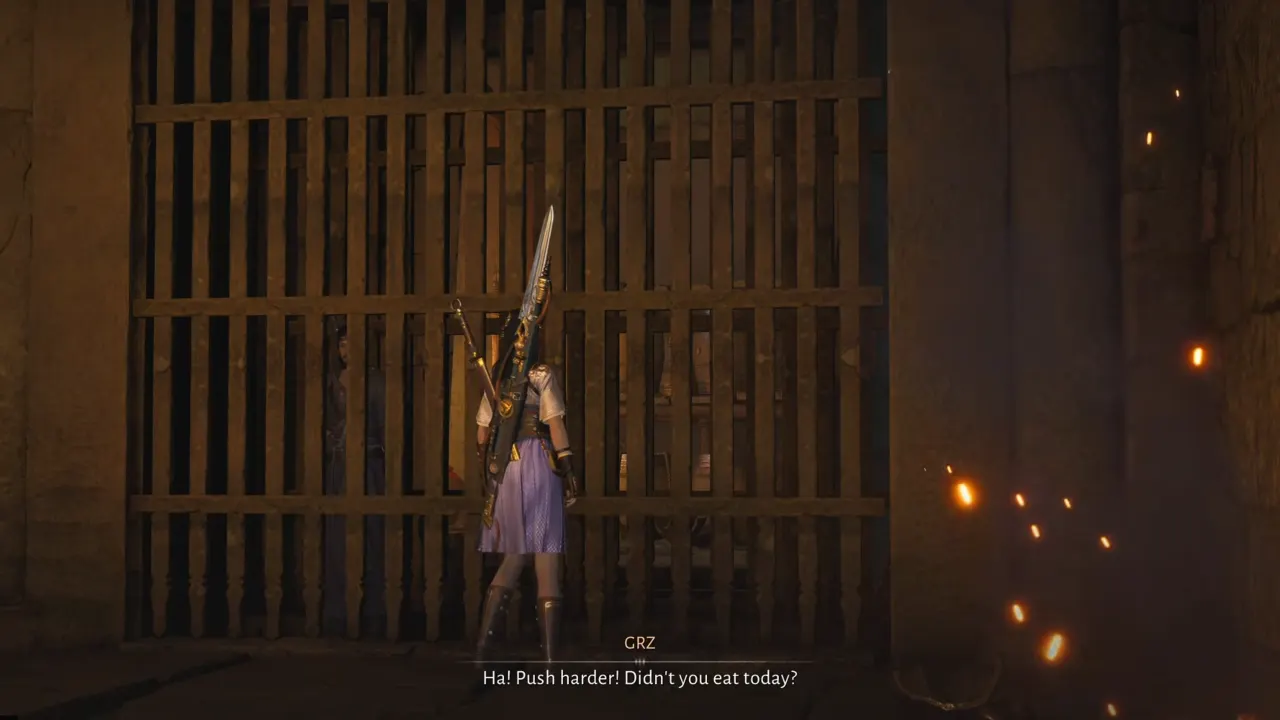To encounter Goblins, Tieflings, mind flayers, and the occasional grumpy NPCs in Baldur’s Gate 3? Larian Studios has introduced a dice roll setting like the old series titles that works differently than the typical DC checks: Karmic Dice. You can find this dice setting in the game’s options menu and, much like a D20 roll with no proficiency bonus and little details about it. The only thing the game tells is that this dice option prevents a streak for success or failure but mostly operates as random. Our guide explains what Karmic Dice does in Baldur’s Gate 3, how it works, and if you should turn it on or off throughout your storyline.
What is Karmic Dice in Baldur’s Gate 3?
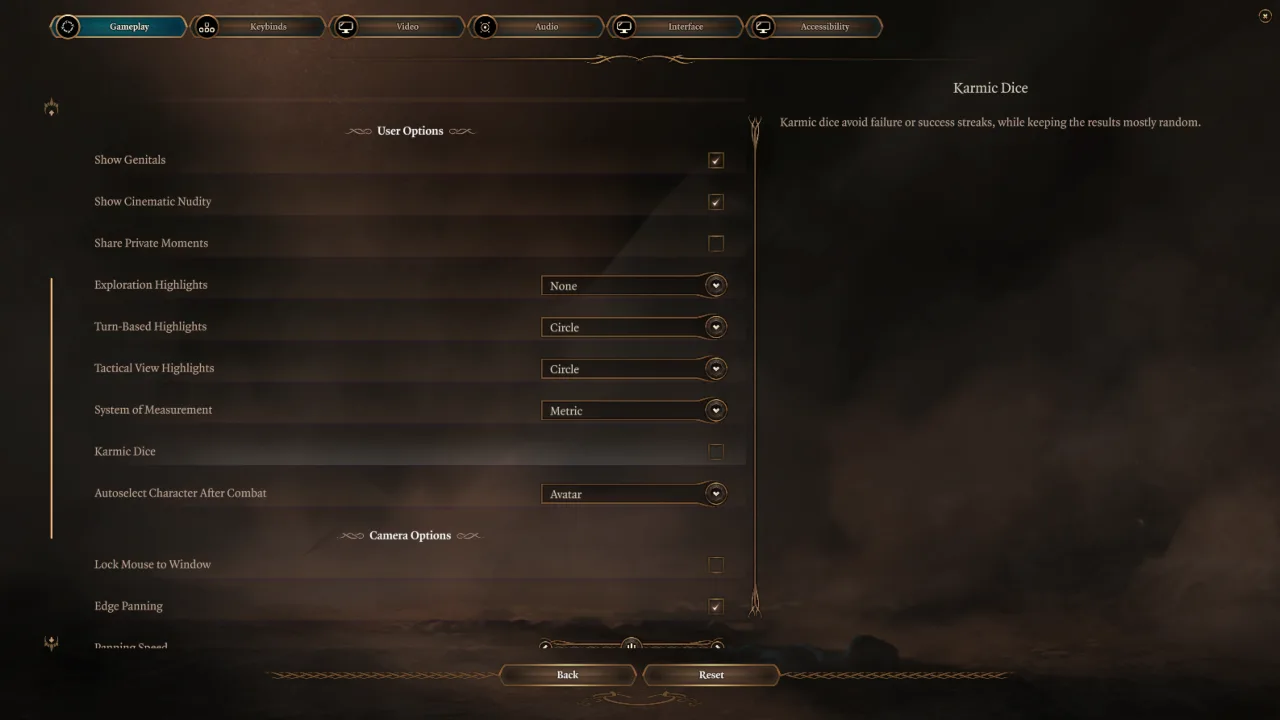
Karmic Dice in Baldur’s Gate 3 controls your dice rolls and forces them back toward balance. The game describes it as a system that “avoids failure or success streaks while keeping the results mostly random.” What this means is that Karmic Dice prevents you from experiencing a string of bad or good rolls. If you’ve been failing many checks such as Persuasion, Deception, or in battles in a row, it will turn the odds in your favor for your next roll. But it works in the opposite direction too. If RNG gods have been too generous for you with great success checks, Karmic Dice will result in a failed roll as its function is to keep the equal balance between “good” and “bad” dice rolls.
In other words, it operates as a safety net for those BG3 players who don’t want to live and die by the wild swings of pure RNG. But, of course, like every magic spell, this balancing feature doesn’t only apply to you—it also applies to your enemies. So while Karmic Dice stops you from landing three critical misses in a row, it can also save the Goblin from rolling a trio of critical fails. Karmic Dice is enabled by default in the game but if you want to turn it off, go to Options from the main menu. In the Gameplay tab, go down to User Options and uncheck the Karmic Dice option – you can tick the box again whenever you want to turn it on. Click on Apply to save the changes.
Should You Turn Karmic Dice On or Off in Baldur’s Gate 3 (BG3)?
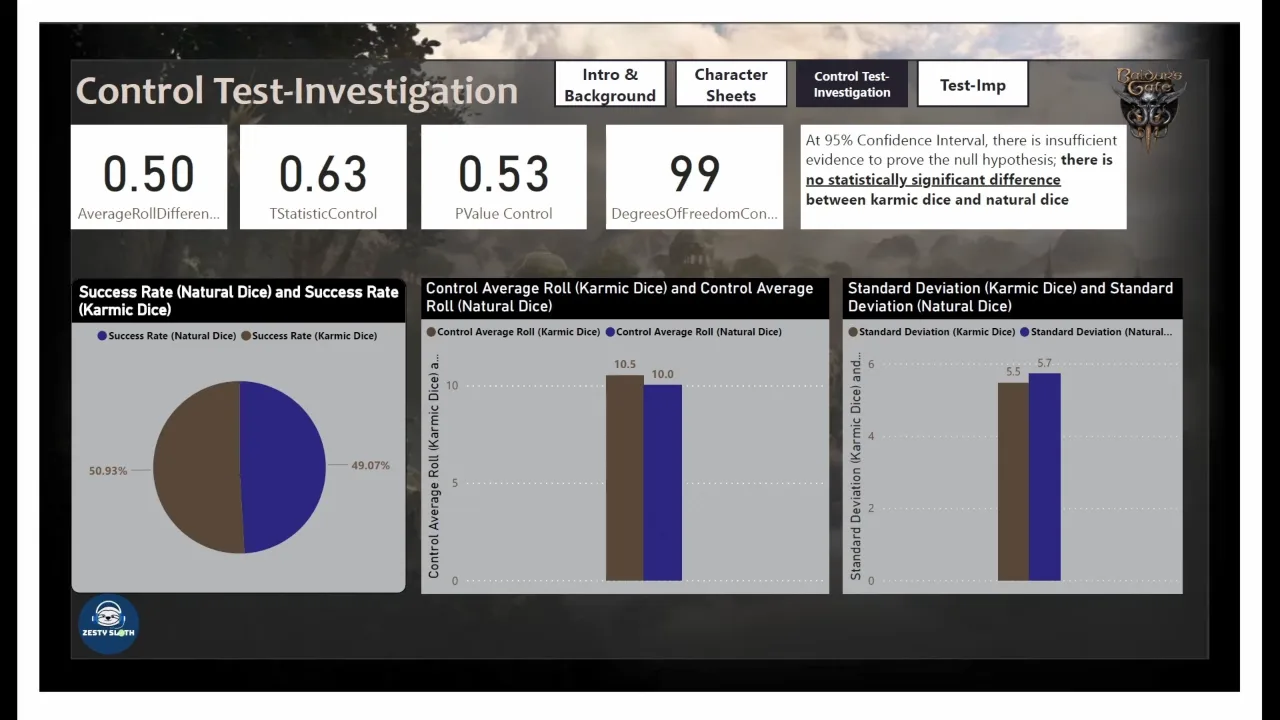
I’ve played with this setting to learn about its good and bad and it’s enough to say that I’ve consulted both the gods of fate and RNGs. The game’s vague description doesn’t do it justice, but as already discussed above, Karmic Dice is a feature added to improve the randomness of your dice rolls. In theory, it sounds like a nice, balanced system. But in practice, it’s a mixed bag.
At first, I left Karmic Dice on by default by thinking, “Sure, why not? A little help from the dice feature couldn’t hurt.” In the early hours when you’re still learning the ropes (or tripping over them), this dice set acts like a gentle hand guiding you through the chaos. It kept me from experiencing the soul-crushing moments when every DC check was doomed to fail. I wasn’t constantly facepalming over my rogue tripping over a pebble while trying to sneak past an enemy or my sorcerer botching every Arcana check.
But it wasn’t long before I noticed that combat encounters and skill checks were going to become weirdly predictable. Like, I’d land a crit, and then immediately I’d think, “Welp, here comes the critical miss.” Like the game was reading my mind, balancing my highs with inevitable lows. Instead of basking in the glory of a lucky roll, I started dreading what was coming next.
Then I visited Reddit and the Steam community to see if I was alone in my dice-related paranoia. Turns out, I wasn’t. Many players noticed the same pattern: the moment you get a string of good rolls, this BG3’s Karmic Dice tries to even things out, which leads to frustrating moments when there is an unnecessary fail roll in a very critical dialogue option. One user even joked that Karmic Dice was like an overzealous DM who can’t stand seeing the party succeed too much. Others pointed out that it can make high AC builds squishy, as the enemies get similar boosts to hit chances, leading to an unnatural number of crits against you.

So, I turned Karmic Dice off. And surprisingly, what a difference that made. The randomness felt… well, truly random. My dice rolls weren’t being babysat by some unseen force. If I rolled a critical hit, I could celebrate without holding my breath for an incoming failure. Fights became more unpredictable and exciting. High AC characters like my heavily armored fighter were the walking tank they were supposed to be, instead of getting failure in the face every few rounds.
There is another benefit of turning off the Karmic Dice, my characters’ specializations started to matter. With the setting on, my wizard was failing Arcana checks just as often as my muscle-headed barbarian. But with it off, I started seeing more consistent success in areas where companions were operating like they should be, making their proficiencies feel impactful again.
But that’s not to say Karmic Dice doesn’t have its place. If you’re new to Baldur’s Gate 3 or tabletop RPG mechanics in general, leaving it on can help smooth out some of the more punishing aspects of the game. It keeps you from hitting the long, frustrating stretches of bad luck that could make you want to rage-quit mid-campaign. But if you’re like me, and crave the pure, unfiltered dice experience, then turning this dice setting off should be better.
I played the rest of the BG3 with the Karmic Dice turned and it gave me far better results. However, if you’re still on the fence, consider experimenting with both settings. Play a few hours with Karmic Dice enabled, and then try it with the setting off. You will find out what resonates with your playstyle more. After all, no one is telling you to pick a side for good—you can always switch back and forth whenever the mood strikes.
Read Next:

